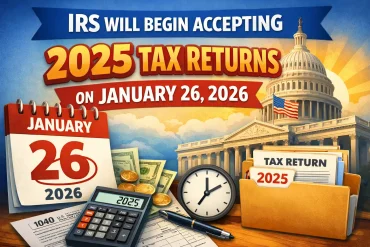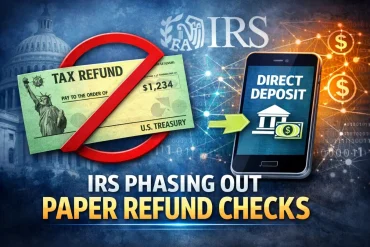The Internal Revenue Service (IRS) is quite strict when it comes to employers/businesses failing to pay or even file taxes. There is no financial scenario that exempts you from paying taxes, and this is regarded as a significant infringement. Here is what happens if you do not file/pay your taxes, what you can do to avoid penalties, and how we can help.
What Can Happen If You Do Not File Your Taxes?
Every American is required to file taxes each year before the due date, even if they have not earned an income. There could always be additional taxes that need to be paid or a refund they are entitled to for taxes paid during the year.
If an American fails to file their taxes on time for the fiscal year, they may face substantial consequences. Assume you are that American, and your tax filing deadline was April 15, 2021. If you did not file your taxes for whatever reason and it is already June, you will be charged a failure-to-file penalty. The failure-to-file penalty is 5% of the unpaid tax for each month or partial month the return is late, with a maximum penalty of 25%. Remember that if your tax return is more than 60 days late, you may be charged a minimum of $435. The minimum penalty is $435, or 100% of the tax due on the return, whichever is lesser.
What Can You Do?
Even if you are unable to pay, you should always submit your taxes to avoid penalties and interest. Filing your taxes will spare you some fines as well as the loss of a potential return. Penalties for failing to pay are lower than failing-to-file so you need to file your taxes. If you are unable to pay, you can request an extension, which provides you with an extra six months to save and file your taxes. However, the extension must be filed before the due date, or you may be charged with a failure-to-file penalty.
What If You Fail to Pay Your Taxes After Filing Them?
If you do not pay your taxes after filing them on time, the IRS might charge you a failure-to-pay penalty. For the failure-to-pay penalty, you are fined 0.5 percent of your unpaid taxes for each month you do not pay, up to a maximum of 25%. Unpaid taxes also accumulate interest at the federal short-term rate plus 3%. Interest begins to accrue the day after your taxes are due and continues to compound daily until the debt is paid in full. Keep in mind that if you are charged both failure-to-file and failure-to-pay penalties, your total monthly interest cannot exceed 5%.
What Should You Do?
Do not be worried if you have unpaid taxes and have been charged penalties! You still have time to fix this! The first thing you should aim to do is pay as much of your taxes as possible before interest begins to accrue.
If you don’t think you’ll be able to pay your taxes on time, contact the IRS. They will do everything they can to assist you. They can help you figure out the best approach to pay your taxes while meeting your obligations.
How Can We Help?
SDG Accountants is one of the best accounting firms in Miami; we have many consultants that can provide you with the best guidance and lead you through the best solution in dealing with the IRS. When dealing with tax issues, you will need the assistance of an expert. You need a consultant who can represent you to the IRS and potentially identify a simpler way for you to pay your taxes. Our Miami Tax Accountant can assist you in negotiating payment terms and lowering your taxes to an amount you can afford.



